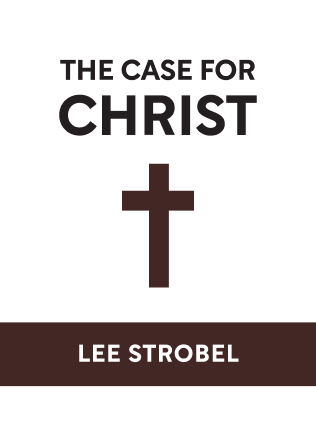

This article is an excerpt from the Shortform summary of "The Case for Christ" by Lee Strobel. Shortform has the world's best summaries of books you should be reading.
Like this article? Sign up for a free trial here .
Who is Louis Lapides? What are his views on Jesus and the messiah prophecy?
Louis Lapides is a Christian scholar who studied both the Old and New Testaments. In The Case for Christ, Strobel sought out the expertise of Louis Lapides to determine whether or not Jesus was truly the messiah.
Read more about Louis Lapides and his research.
Louis Lapides and the Messiah Prophecy
Another way to establish Jesus’s deity, separate and apart from his divine traits, is to compare him with Old Testament descriptions of the Messiah. Jewish scriptures are full of prophecies about the arrival of the Messiah, an emissary of God who would redeem humanity. These prognostications often feature specific details (so that the Jewish people would recognize the Messiah when he came). If Jesus matches these details, which were articulated generations before Jesus’s birth, there’s good reason to believe Jesus is indeed the Anointed One.
To explore this possibility, Strobel visits Louis Lapides, a pastor at a church in California. Louis Lapides’s path to Christ was a winding one. Raised Jewish in New Jersey, Lapides was drafted and sent to Vietnam, where he began exploring Eastern religions. When he returned home, depressed and rootless, he experimented with drugs and even contemplated suicide.
Eventually, Lapides ended up in California, where he continued to search for a religious path. In 1969, an impromptu encounter with a pastor led to Lapides’s revisiting the Old Testament. The pastor had told him that Jesus was the Jewish Messiah—a figure entirely absent from Lapides’s childhood instruction in Judaism—and gave him a copy of the Bible with both the Old and New Testaments. Lapides began scouring the Old Testament for references to the Messiah.
Soon enough, he found them: in Deuteronomy, which prophesies the coming of a prophet greater than Moses; and in Isaiah, which describes the Messiah as an “oppressed and afflicted” man who dies for the sins of his fellow humans. In the end, Louis Lapides found nearly 50 prophecies in the Old Testament that refer explicitly to Jesus, including:
- The Virgin birth (Isaiah)
- His birthplace of Bethlehem (Micah)
- The manner of his death and his resurrection (Psalms)
After an epiphany he experienced while camping in the Mojave Desert, during which God spoke to him and told him Jesus was the Messiah, Louis Lapides swore off drugs and accepted Jesus into his life. He married a Jewish woman who was also a follower of Christ and joined a church (which, coincidentally, was led by the pastor who’d given him the Bible that sparked his curiosity about Jesus).
Challenges to the Prophecies
Many Jews, like Louis Lapides himself, are simply oblivious to the fact that the prophets of the Old Testament anticipate Jesus’s arrival; once they do the necessary reading—of the Bible and the relevant secondary sources—the facts of the case become undeniable.
That said, there are a number of possible objections to Jesus’s being the Messiah of the Old Testament.

———End of Preview———
Like what you just read? Read the rest of the world's best summary of Lee Strobel's "The Case for Christ" at Shortform .
Here's what you'll find in our full The Case for Christ summary :
- How an atheist lawyer-journalist researched Christ and began believing
- The key arguments against the existence of Christ, and why they don't hold up
- How to make up your own mind about whether Christ existed






